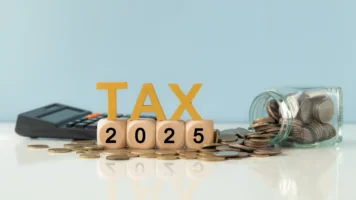Need a Loan but Keep Getting Declined? Here Are Your Options
The last thing you want when you need a last minute loan is trouble with approval. So let’s explore what you need to know if you currently need a loan but keep getting declined. Whether you were rejected by a bank or private lender, there are other options available to you.
Overview:
- What to do if you need a loan but keep getting declined
- How much does a declined loan affect credit score?
- Can I decline a loan after approval?
- What to do after your loan is rejected by a bank or private lender
- When can I apply for a personal loan again after getting declined?
- How to improve your chance of getting approved for a personal loan
- What happens if I get approved for a loan but don’t use it?
What to do if you need a loan but keep getting declined
When you are in a tough financial spot and struggling to get a loan, it can be daunting. But Swoosh has you covered. We have put together a list of 6 things you can do if you need a loan in Australia but have been declined.
- Apply for a smaller secured loan
- Take advantage of government assistance
- Explore charity and NILs
- Use a guarantor
- Talk to a loan broker
- Apply for a bad credit loan
This is not a complete list of the options out there, but it may help expand your search and find the best finance choice for you. Now let’s look at each of these options in detail.
1. Apply for a smaller secured loan
Using collateral for your loan, like a car, helps lower the risk to the lender and can make it easier to get approved. There are a lot of secured loans available in Australia, so make sure you compare options before deciding where to apply.
2. Take advantage of government incentives
Check out the rebates and assistance available from the Australian government. And if you own a business you might be eligible for a government grant to help with costs or funding.
3. Explore charity and no interest loans (NILs)
NILs loans are suitable for low income families, some are offered by your local government and many others are offered by charities. Knowing your loan application reason will help narrow down your options quickly as these loans tend to have specific use requirements and restrictions.
4. Use a guarantor loan
Guarantor loans can help get your application approved, given they have a good credit rating. A guarantor is responsible for paying back the loan if you fail to. So be careful before you ask someone to be your guarantor and make sure you both understand the risks.
5. Talk to a loan broker
Need a personal loan, car loan, or any other type of finance but have been declined? Consider using a loan broker to take a look at your situation and offer advice. They may be able to sort you out with a loan solution immediately. Or advise what you need to do to be eligible in the future and prevent you from applying unnecessarily.
6. Apply for a bad credit loan
If your application is being declined because of your credit rating then a bad credit loan could be just what you’re looking for. The eligibility requirements for approval are easier with bad credit loans than with other loan types. But keep in mind that interest rates tend to be higher as well. So carefully consider your options before you decide on the right finance choice for you.
How much does a declined loan affect credit score?
Worried about your credit score taking a hit because of a recent loan application rejection? Then you can rest easy. Getting declined for a loan won’t affect your credit score, nor will it appear in your credit history.
What will impact your credit score is the ‘hard enquiry’ on your credit report that occurs when you apply for a loan. Hard enquiries happen when lenders access your credit report to assess your eligibility and creditworthiness.
That’s why it’s important to be reasonably confident you will be approved before you apply and to avoid applying for too many loans at once. If you are declined you will be applying with a lower credit rating and may find it even harder to get approved. Your credit score will bounce back eventually but it will take some time.
Can I decline a loan after approval?
Yes, if you change your mind after you are approved for a loan you do not need to sign the loan agreement. Just let the lender know you have changed your mind and would like to withdraw your application.
Some lenders may also offer a ‘cooling off period’ that allows you to back out of a loan agreement after you have signed it within a certain amount of time.
What to do after your loan is rejected by a bank or private lender
There are a few questions you should run through if you still need finance after being declined for a loan. They will help you narrow down your options and consider your next steps.
Key things to consider when you need a loan but keep getting declined:
- Why were you declined? Knowing where the issue lies will help you better prepare for your next loan application.
- How much do you need to borrow? The smaller the amount the easier it will be to find alternative options.
- How soon do you need it? There are different avenues open depending on how urgently you need funds.
- What do you need the loan for? Some loan reasons are easier to get approved for than others.
If you can answer these questions, you are on your way to choosing a finance option that works for your needs and situation.
When can I apply for a personal loan again after getting declined?
If you want to apply at the same bank or lending business again, then it is best to wait at least 30 days to give time for your circumstances to change. Every business will have different restrictions around this, so check their specific requirements before you attempt to reapply.
How to improve your chance of getting approved for a personal loan
If alternative finance options don’t appeal to you, then work on improving your chances of approval. Below are some common methods for giving your creditworthiness a boost.
1. Wait a few months
If you don’t need finance ASAP then spending a bit of time working on your financial situation is a good idea. Make sure you ask the lender who declined your application why it wasn’t approved. Then you will know exactly what you need to work on in order to improve your chances for next time. Plus, it will give your credit score time to bounce back from the hard enquiry made on it when you applied for finance.
2. Cut back on spending
If you are spending too much of your income then make small changes to cut back on costs. Check out our 26 money saving tips for Australia to get some ideas. Or find out how using energy efficient appliances and solar power can help cut costs.
3. Limit credit card use
Lenders prefer if you have a lower credit utilisation rate, so you are not spending all of the money available to you on your revolving credit (things like credit cards or a line of credit loan). This can also help to reduce your debt-to-income ratio (DTI) by cutting down on the overall amount of debt you are paying in relation to your income.
4. Don’t change jobs
Maintain a consistent income at the same job for at least a couple months before you apply for a loan. Inconsistent income and changing jobs a lot may impact your chances of approval.
5. Start another income stream
If you are not earning enough from your first job consider taking up a second income stream while you need the extra finance.
6. Make payments on time
Payments make up a significant portion of your credit score. So make sure you protect yourself by making repayments on time. If your situation changes make sure to contact your lender as soon as possible to work out a new payment arrangement.
7. Get up to date with any missed payments
If you have dishonoured any repayments then pay as many off as you can before you apply for another loan. Lenders need to see that you are able to handle your current financial agreements as well as the added costs of the new loan. Consolidating your debt could help you to avoid dishonouring payments by combining everything into one simple payment.
8. Build a credit history
If you are just starting out you may not have built much of a credit history up. Some lenders offer no credit history loans. But others will want to see that you have demonstrated responsible credit management over time before giving you a chance.
9. Improve credit rating
It may not be any one thing on your credit file that causes your loan to be declined. Your credit rating might simply be too low to service at this time. And in that case, it might be time to learn exactly what a good credit score is and how you can improve it.
10. Apply for a small amount
If you can make up the extra cash some other way, either by taking up some fast cash jobs or borrowing from a friend or family member, you might be eligible for a small cash loan to cover the rest.
What happens if I get approved for a loan but don’t use it?
If you do not use the loan funds, then you are better off repaying the loan as soon as possible to avoid paying more on interest. Check your loan terms first to make sure you won’t be charged an early repayment fee.
Been declined because of your credit history? Swoosh could be the answer
The loan process can sometimes be complex but it becomes worse when you keep getting rejected for different reasons. In summary, our best advice when you need a loan but keep getting rejected is to be patient, build up your credit score and plan a budget around your income to plan for bills, repayments and everyday expenses.
When you’re next in need of a loan, look into what we have to offer. With our fully online application process and multiple loans to choose from. We offer quick loan approval to a wide range of Aussies, even those with a bad credit history. Apply today with Swoosh.











